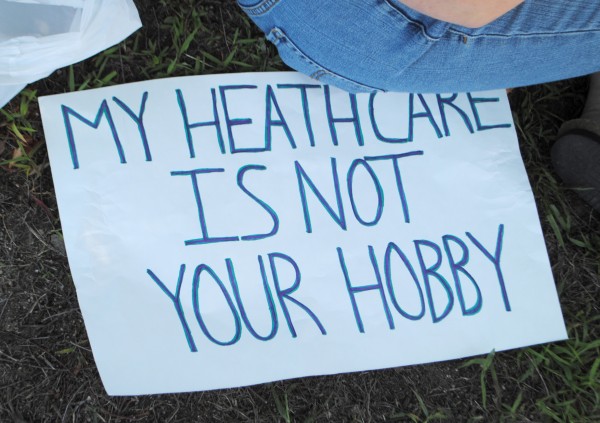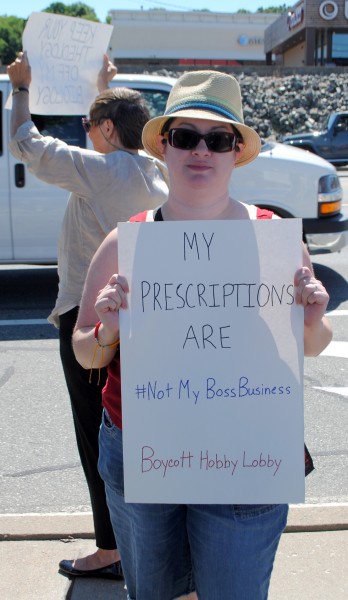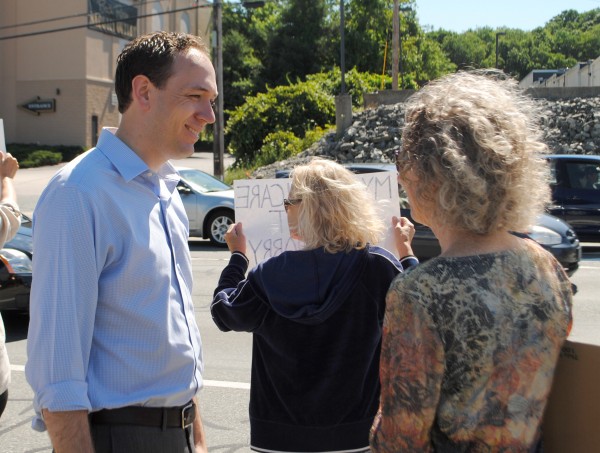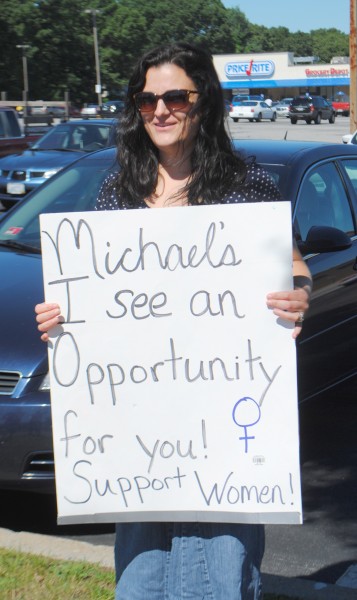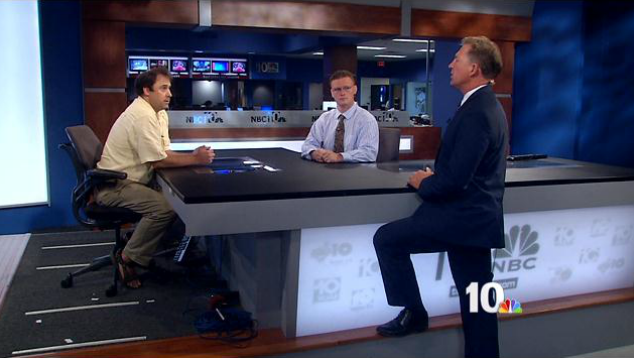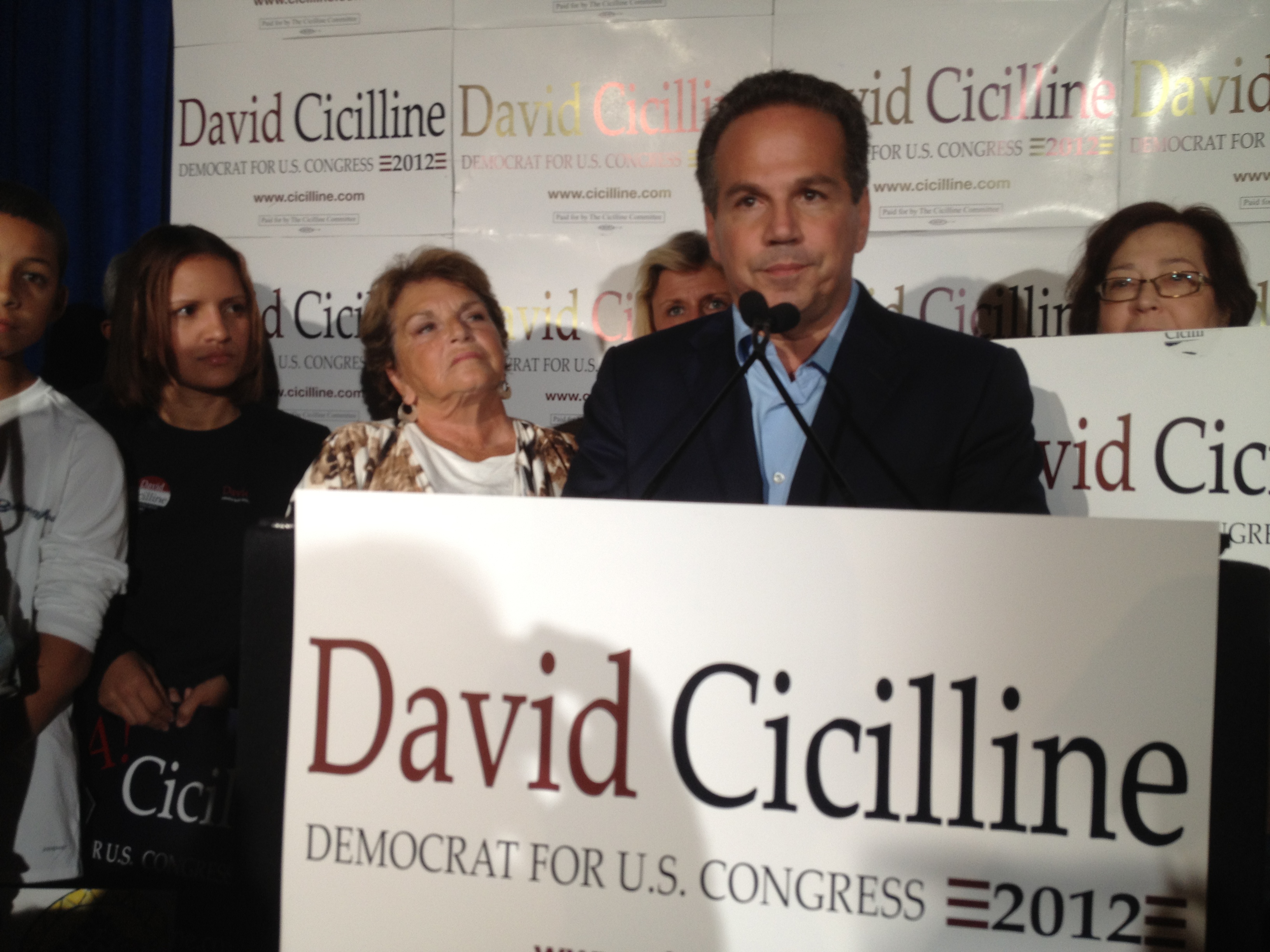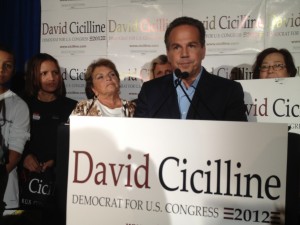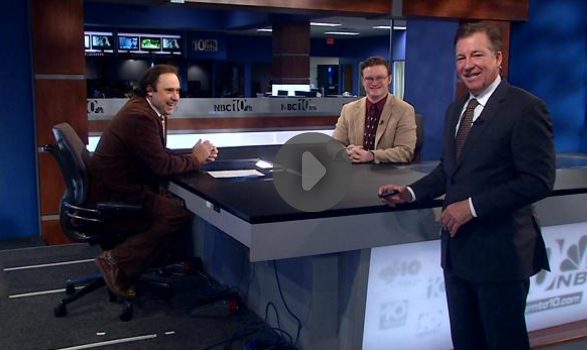 In speaking out against a bill that would make sure no pregnant person could be denied medical coverage due to their pregnancy, a health insurance lawyer unintentionally made a great case for a national, single payer health program.
In speaking out against a bill that would make sure no pregnant person could be denied medical coverage due to their pregnancy, a health insurance lawyer unintentionally made a great case for a national, single payer health program.
Shawn Donahue is an attorney at Blue Cross & Blue Shield of Rhode Island and last Tuesday he spoke at the House Corporations Committee meeting to oppose a bill that would ensure “no pregnant applicant for medical insurance coverage would be denied coverage due to her pregnancy.”
I want to stress at the outset that Donahue seems like a decent man, and I sensed that he was somewhat uncomfortable speaking out against this bill.
“No one believes in the importance of pre-natal care more than Blue Cross,” said Donohue, “We’ve invested in it.”
That’s true. “Getting early and regular prenatal care is one of the most important things you can do for the health of both you and your baby,” says Blue Cross on its website. The site contains a wealth of information and advice on healthy pregnancies. But we don’t have to assume that Blue Cross is promoting neonatal care out of any sense of public service. Healthy pregnancies are cheaper for insurance companies. An insured baby, with proper neonatal care, is less likely to have expensive health problems going forward.
The importance of prenatal care is underscored by the health risks associated with not having such care.
“Women in the United States who do not receive prenatal care have an increased risk of experiencing a neonatal death… Lack of prenatal care is associated with a 40 percent increase in the risk of neonatal death overall…” says the Guttmacher Institute, citing a study, “Black women are more than three times as likely as white women not to receive prenatal care, and regardless of their prenatal care status, their infants are significantly more likely to die within their first 27 days of life than are infants born to white women.”
Other risks from not receiving adequate prenatal care include low birth weight for the infant, and pre-eclampsia, a form of organ damage, that affects the mother. From a human perspective, this is terrible and unnecessary. From the perspective of an insurance company, such health problems are expensive.
Yet, said Donohue, speaking for Blue Cross at the Rhode Island State House, “The only way insurance works is if you purchase it when you don’t need it so it’s there for you when you do. If you allow people a special enrollment period, whether they’re diabetics, cancer patients or pregnant people, they won’t buy it until they need it.”
The Affordable Care Act (ACA or Obamacare) mandates that Rhode Islanders buy private insurance on the state run health insurance exchange, HealthSourceRI. “If you’ve missed the open enrollment period,” said Donohue, “ you’ve broken the law and now you are penalized for that, and the penalties start to grow.”
Donahue is talking about financial penalties of course, but the real penalties from a societal point of view are dead babies, or babies and mothers with terrible health outcomes. Suddenly the financial penalty for not complying with the ACA mandate seems rather small and meaningless, doesn’t it? But more to the point, it’s exactly these negative health outcomes that Obamacare was supposed to address.
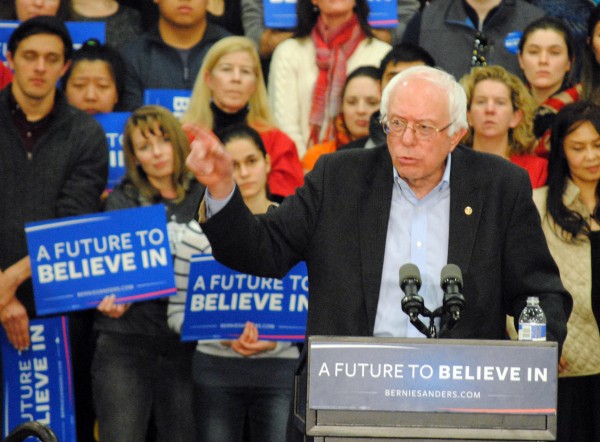 “We don’t let people buy insurance on their way to the hospital in an ambulance,” said Donahue. I would say that having to worry about financial issues during a medical emergency is a major system failure, and further, these gaps in care for vulnerable Americans expose the weaknesses in today’s for-profit health insurance industry, of which Blue Cross & Blue Shield of Rhode Island is a big part.
“We don’t let people buy insurance on their way to the hospital in an ambulance,” said Donahue. I would say that having to worry about financial issues during a medical emergency is a major system failure, and further, these gaps in care for vulnerable Americans expose the weaknesses in today’s for-profit health insurance industry, of which Blue Cross & Blue Shield of Rhode Island is a big part.
According to Physicians for a National Health Program (PNHP), “Single-payer national health insurance, also known as ‘Medicare for all,’ is a system in which a single public or quasi-public agency organizes health care financing, but the delivery of care remains largely in private hands. Under a single-payer system, all residents of the U.S. would be covered for all medically necessary services, including doctor, hospital, preventive, long-term care, mental health, reproductive health care, dental, vision, prescription drug and medical supply costs.

“The program would be funded by the savings obtained from replacing today’s inefficient, profit-oriented, multiple insurance payers with a single streamlined, nonprofit, public payer, and by modest new taxes based on ability to pay. Premiums would disappear; 95 percent of all households would save money. Patients would no longer face financial barriers to care such as co-pays and deductibles, and would regain free choice of doctor and hospital. Doctors would regain autonomy over patient care.”
On the national scene Bernie Sanders has championed single payer, calling it Medicare for All. “Health care must be recognized as a right, not a privilege,” says Sanders, “Every man, woman and child in our country should be able to access the health care they need regardless of their income. The only long-term solution to America’s health care crisis is a single-payer national health care program.”
State Representative Aaron Regunberg has introduced, for the second time, a bill to bring the benefits of a single payer health insurance program to Rhode Island. His bill would “act would repeal the ‘Rhode Island Health Care Reform Act of 2004 – Health Insurance Oversight’ as well as the ‘Rhode Island Health Benefit Exchange,’ and would establish the Rhode Island comprehensive health insurance program.”
His bill deserves our support.




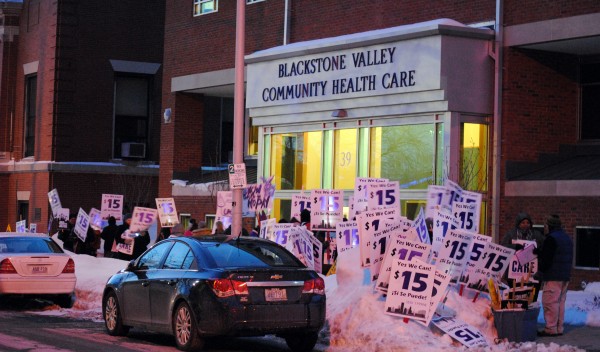 As the sun was setting and temperatures dropped, over seventy workers and supporters took to the sidewalks with illuminated “Yes We Can! $15” signs chanting in both English and Spanish outside
As the sun was setting and temperatures dropped, over seventy workers and supporters took to the sidewalks with illuminated “Yes We Can! $15” signs chanting in both English and Spanish outside  BVCHC has been expanding recently, capitalizing on the increase in business the health care provider has received under Obamacare. The number of patients served by the company has increased to over 15,000.
BVCHC has been expanding recently, capitalizing on the increase in business the health care provider has received under Obamacare. The number of patients served by the company has increased to over 15,000.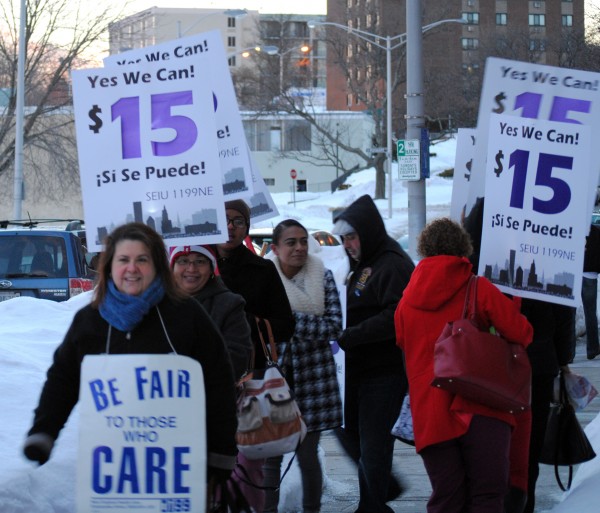

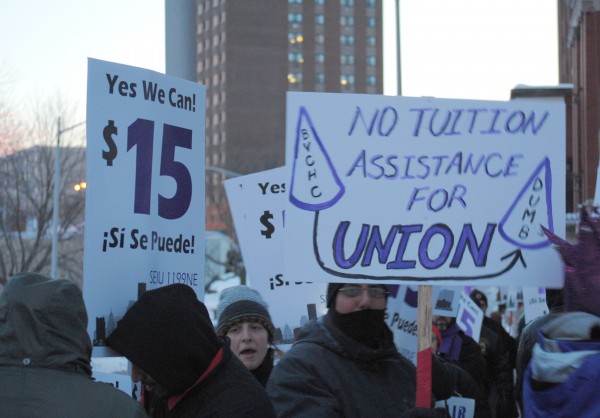



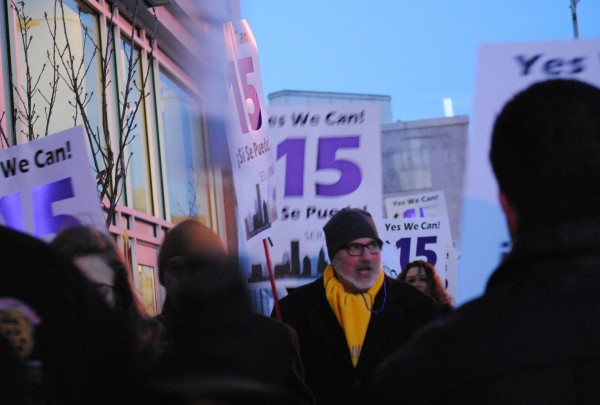

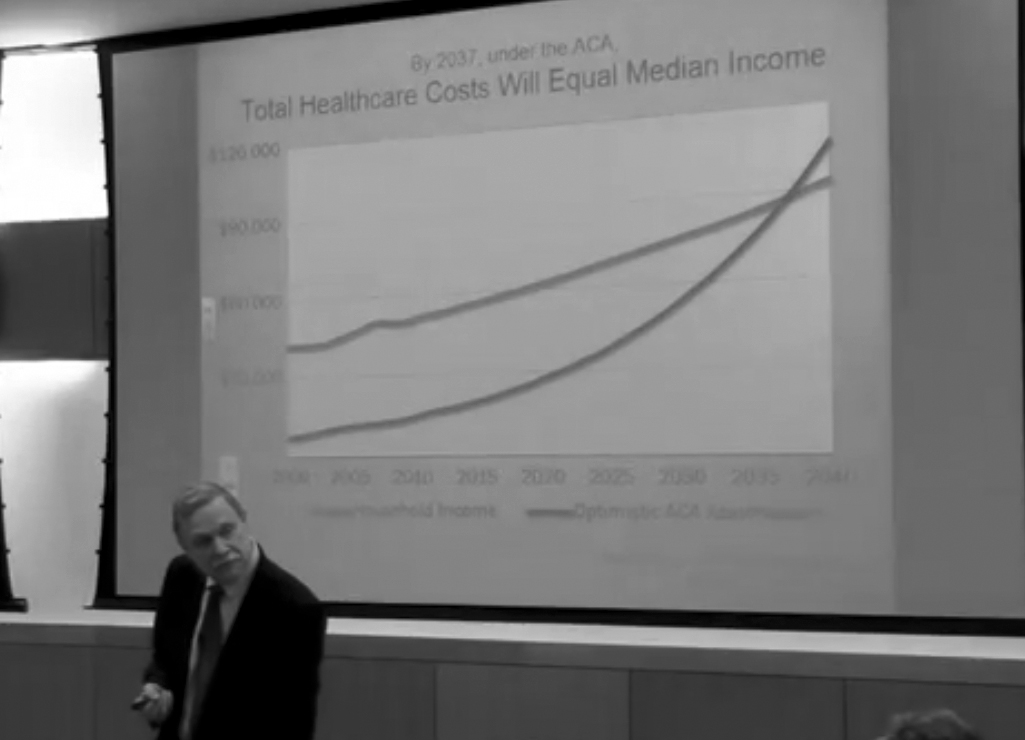
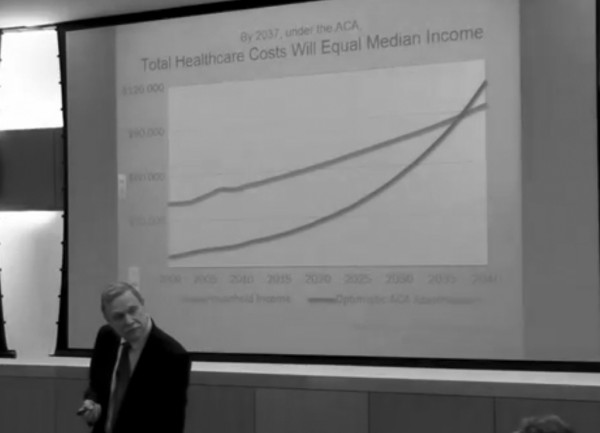
 Representative Aaron Regunberg, from the East Side’s District 4, is planning to introduce legislation for a statewide single payer healthcare plan this session. Model legislation from the PNHP is available
Representative Aaron Regunberg, from the East Side’s District 4, is planning to introduce legislation for a statewide single payer healthcare plan this session. Model legislation from the PNHP is available 
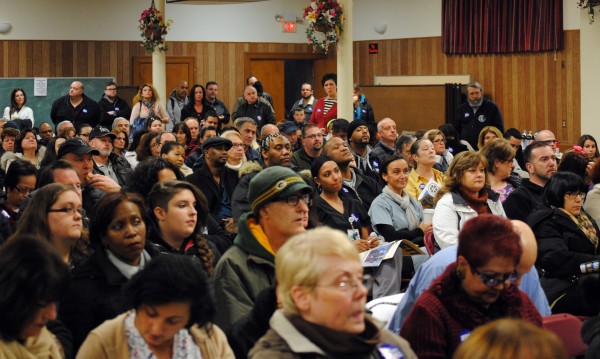 More than 500 people crowded into the meeting room of Our Lady of the Rosary Church on Benefit St in Providence for the
More than 500 people crowded into the meeting room of Our Lady of the Rosary Church on Benefit St in Providence for the  According to Local 251, “As a non-profit entity, Lifespan and RI Hospital are supposed to put the healthcare needs of the community first. Unfortunately, management has taken cost cutting measures, causing shortages in equipment and staff that undermine patient care.”
According to Local 251, “As a non-profit entity, Lifespan and RI Hospital are supposed to put the healthcare needs of the community first. Unfortunately, management has taken cost cutting measures, causing shortages in equipment and staff that undermine patient care.”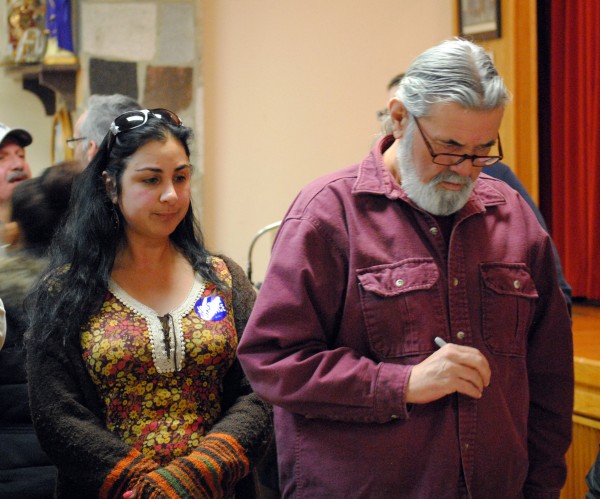 Obamacare has allowed Lifespan/RI Hospital to take in an additional
Obamacare has allowed Lifespan/RI Hospital to take in an additional 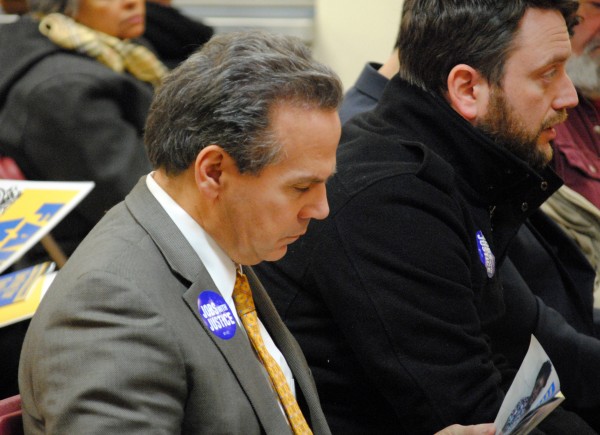 The Speakout was intended to show community support for the workers of RI Hospital, and was attended by Representatives David Cicilline and Jim Langevin, as well as General treasurer Seth Magaziner. There were also representatives from many other unions and community groups such as Jobs with Justice, Unite Here! and Fuerza Laboral. Many religious leaders, including Father Joseph Escobar and Rev Duane Clinker, were on hand to show support.
The Speakout was intended to show community support for the workers of RI Hospital, and was attended by Representatives David Cicilline and Jim Langevin, as well as General treasurer Seth Magaziner. There were also representatives from many other unions and community groups such as Jobs with Justice, Unite Here! and Fuerza Laboral. Many religious leaders, including Father Joseph Escobar and Rev Duane Clinker, were on hand to show support.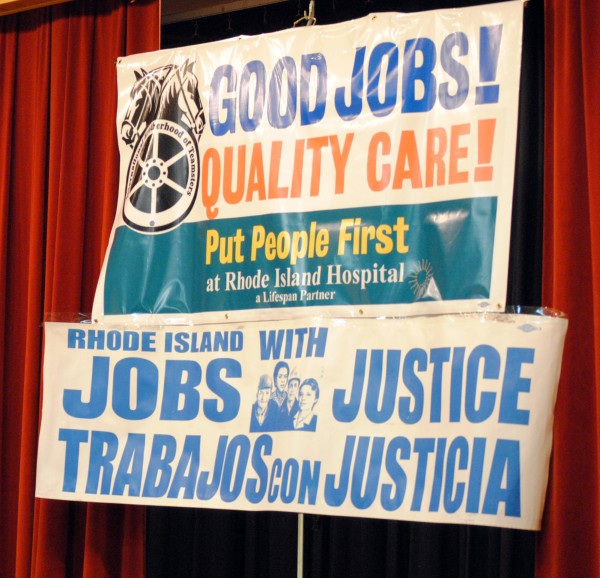
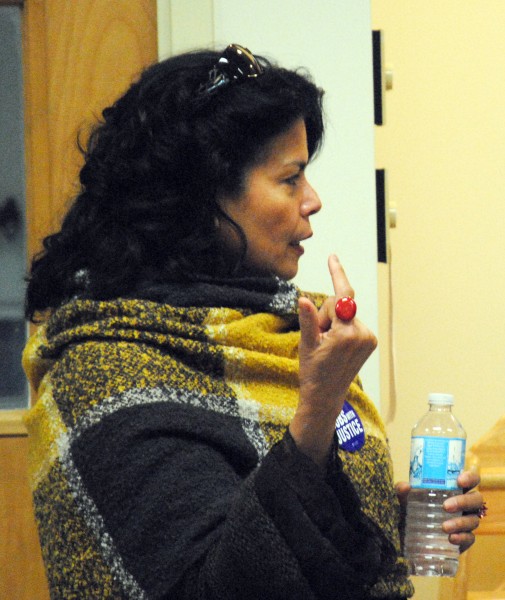
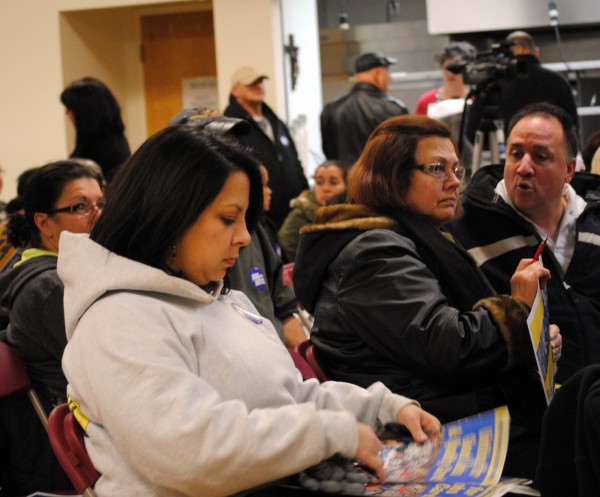
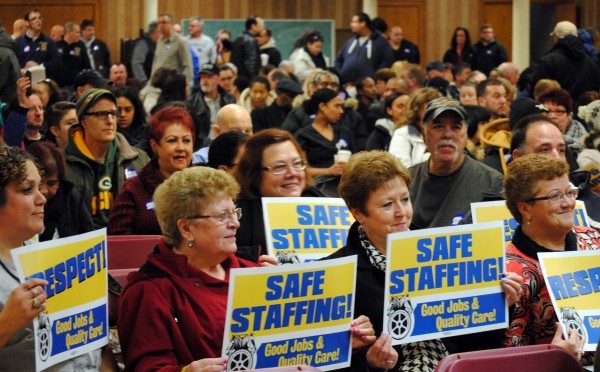
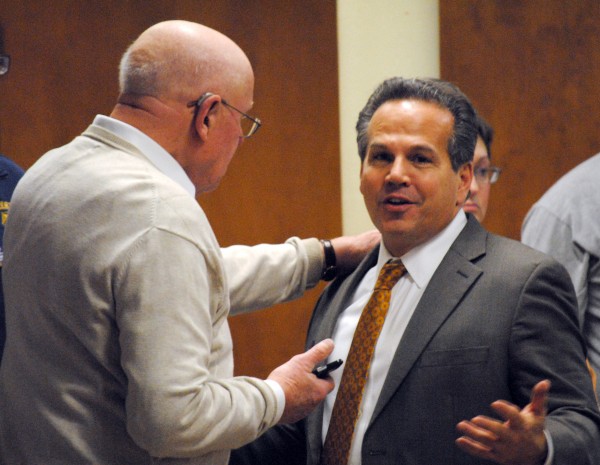




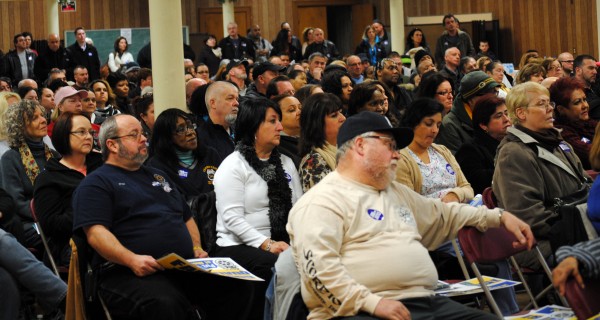



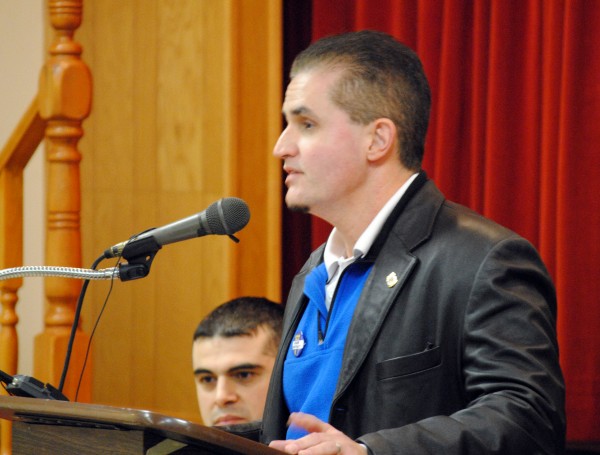
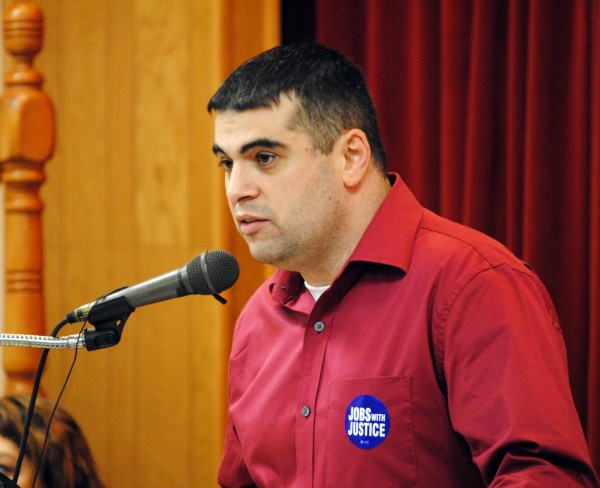
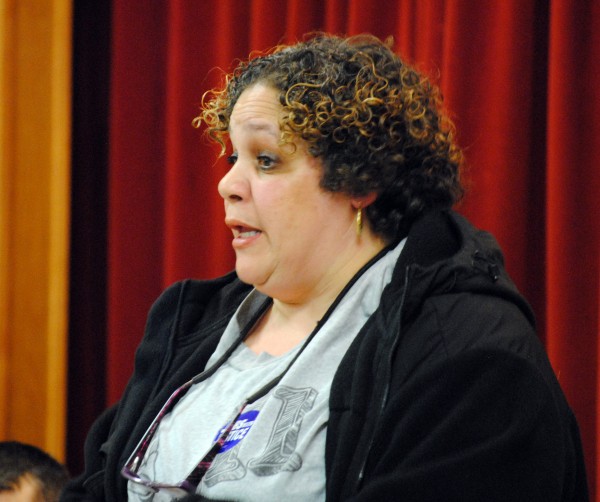

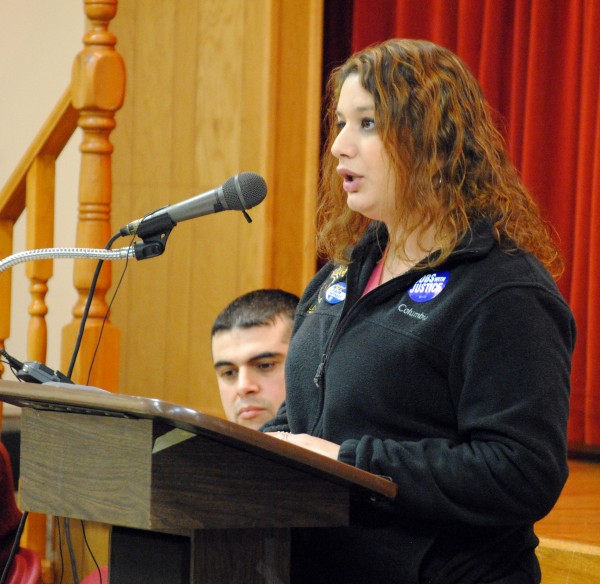


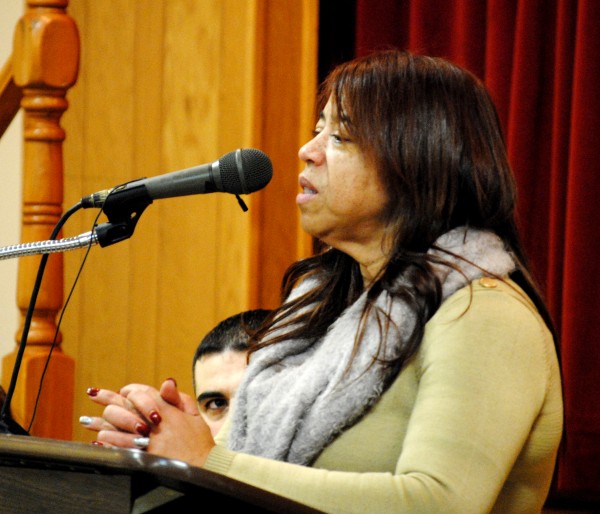


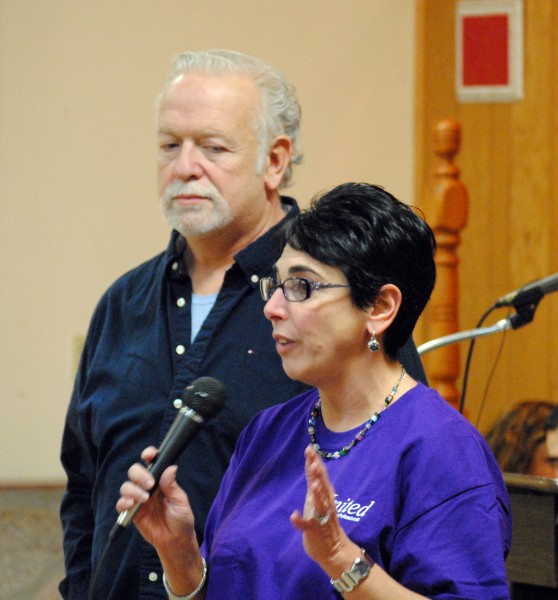

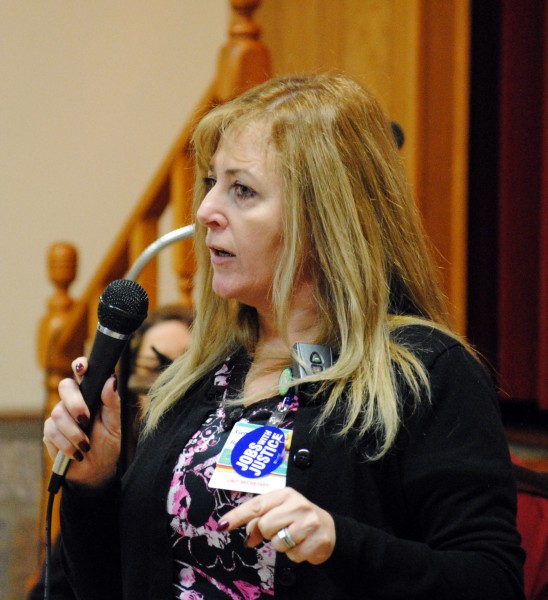




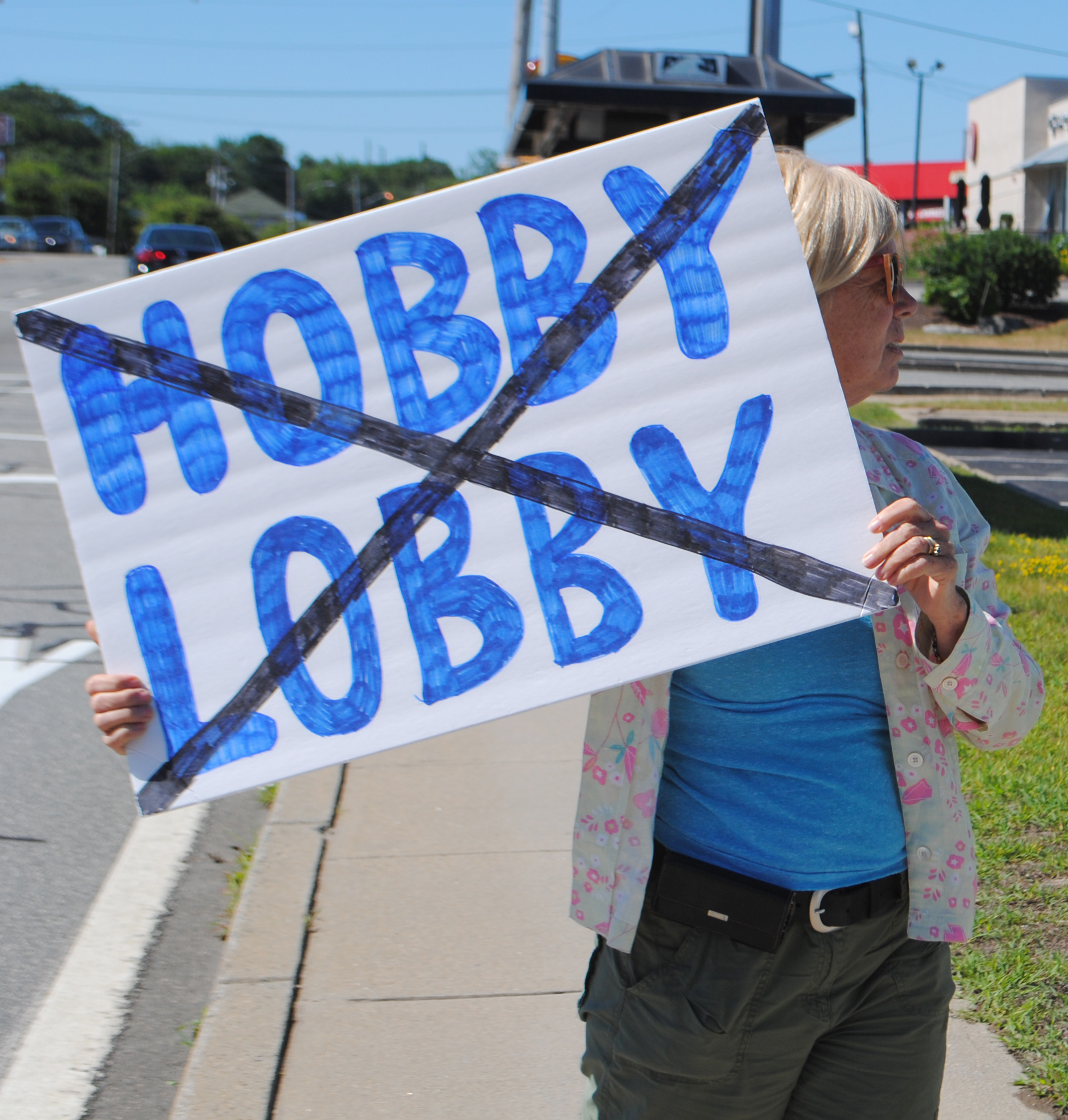
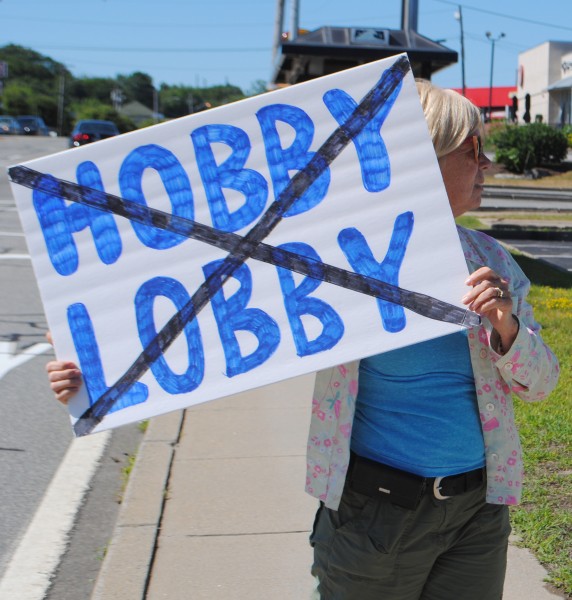 When the decision came down Monday morning, I can’t say I was surprised.
When the decision came down Monday morning, I can’t say I was surprised. And lest you think not being a woman somehow protects you, lawyers are already moving to expand this decision in ways that might have us yearning for the simplicity of Sharia.
And lest you think not being a woman somehow protects you, lawyers are already moving to expand this decision in ways that might have us yearning for the simplicity of Sharia. I decided to hold a rally outside the only Hobby Lobby location in Rhode Island and call for a national boycott of all Hobby Lobby stores. The rally had two purposes. The first was to send a message from Rhode Island, the birthplace of religious liberty and freedom of conscience so loud that even the Supreme Court would hear it. Our little rally, and
I decided to hold a rally outside the only Hobby Lobby location in Rhode Island and call for a national boycott of all Hobby Lobby stores. The rally had two purposes. The first was to send a message from Rhode Island, the birthplace of religious liberty and freedom of conscience so loud that even the Supreme Court would hear it. Our little rally, and 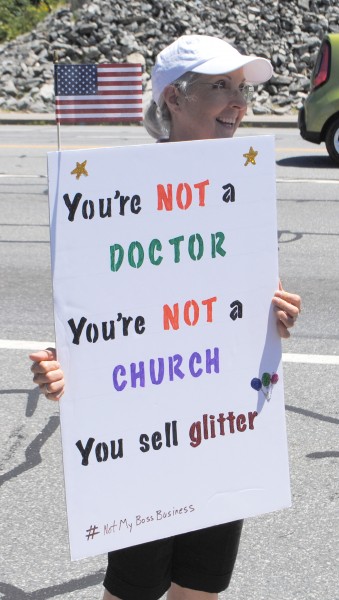 We want specific changes,
We want specific changes,  So at the rally we announced a permanent, never ending boycott against Hobby Lobby. The 125 people who came out to our protest Saturday afternoon and the hundreds more who support us are all committed to never spending so much as a penny at any Hobby Lobby, ever. Further, these women and men have friends, families and distant Facebook contacts across the nation and across the world. They will convince most everyone they know to follow their lead.
So at the rally we announced a permanent, never ending boycott against Hobby Lobby. The 125 people who came out to our protest Saturday afternoon and the hundreds more who support us are all committed to never spending so much as a penny at any Hobby Lobby, ever. Further, these women and men have friends, families and distant Facebook contacts across the nation and across the world. They will convince most everyone they know to follow their lead. The accepted wisdom is that there is no bad publicity, except there is. Hobby Lobby is the corporation that led the way on this kind of lawsuit, and as a result, it will be the first to reap the economic consequences of its decision.
The accepted wisdom is that there is no bad publicity, except there is. Hobby Lobby is the corporation that led the way on this kind of lawsuit, and as a result, it will be the first to reap the economic consequences of its decision.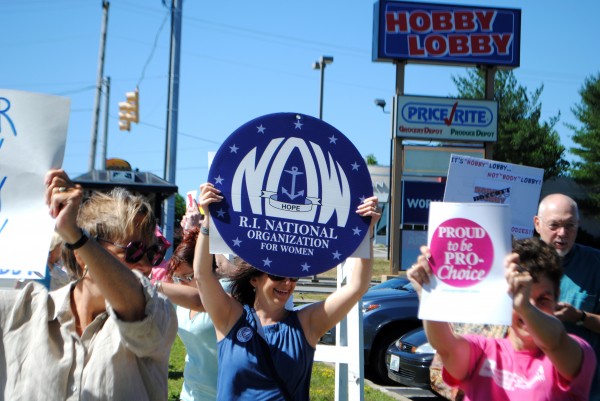 I had informed the Warwick Police Dept of our intentions, and their asks were well in line with our intentions: Don’t block traffic and don’t trespass on private property. Keep it peaceful and be careful. The police had a car parked nearby, but this wasn’t a lawless crowd. We had people on our line aged 13 to 83. Some of the women had fought for women’s rights in the 1950s and 60s and were wondering why they were forced to fight the same old battles again, in the 21st Century. The only danger we presented was to Hobby Lobby’s bottom line.
I had informed the Warwick Police Dept of our intentions, and their asks were well in line with our intentions: Don’t block traffic and don’t trespass on private property. Keep it peaceful and be careful. The police had a car parked nearby, but this wasn’t a lawless crowd. We had people on our line aged 13 to 83. Some of the women had fought for women’s rights in the 1950s and 60s and were wondering why they were forced to fight the same old battles again, in the 21st Century. The only danger we presented was to Hobby Lobby’s bottom line.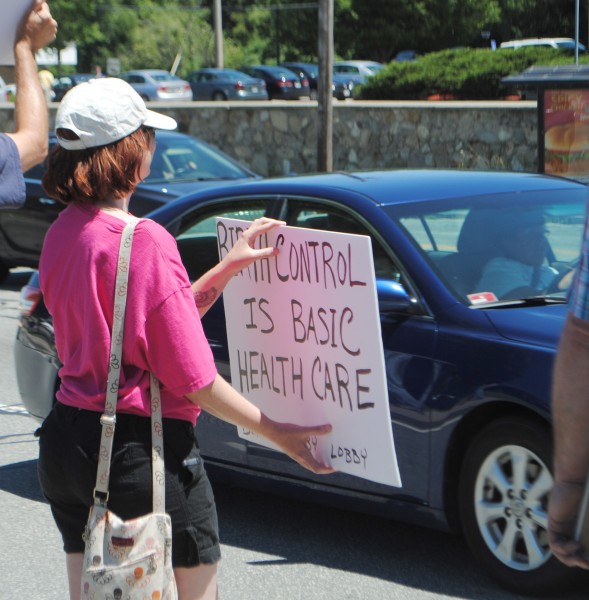 My friends from the Humanists of Rhode Island were in attendance, and stuff like this is never a solo effort. So many people contributed to putting this together. If I list all their names I’ll leave someone out by accident, so I won’t even try, but you all know you are great. Friends from other groups, especially Carolyn Mark or RI-NOW and Lauren Niedel of the RI Progressive Democrats were fantastic. Also, my friends from Unite Here! allowed me to borrow their bullhorn, which I will return soon, promise! I made new friends as well. Thank you Julie! And so many more.
My friends from the Humanists of Rhode Island were in attendance, and stuff like this is never a solo effort. So many people contributed to putting this together. If I list all their names I’ll leave someone out by accident, so I won’t even try, but you all know you are great. Friends from other groups, especially Carolyn Mark or RI-NOW and Lauren Niedel of the RI Progressive Democrats were fantastic. Also, my friends from Unite Here! allowed me to borrow their bullhorn, which I will return soon, promise! I made new friends as well. Thank you Julie! And so many more.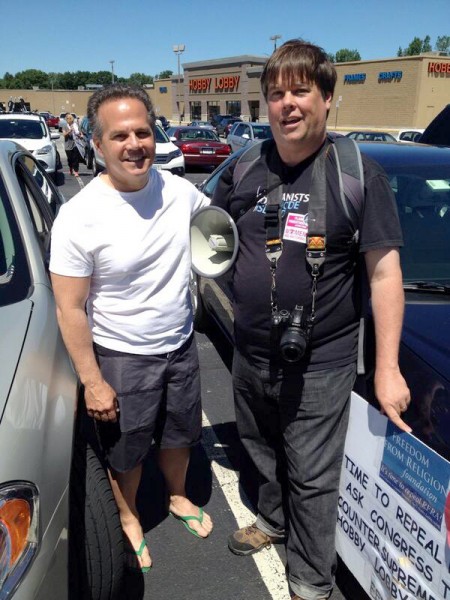
 However, while we were underway, only about four people who disagreed with us showed up, and they engaged in forceful, if not always cogent debate with various members of the protest. Their complaints were mostly of the “abortion is against the will of God” kind which is a bit off topic. This is about religious freedom, not about one group’s particular theology. I recognized two of the women as members of Barth Bracy’s Right to Life group, and it was immediately obvious that they did not actually understand what the Supreme Court had decided. They simply wanted to argue about abortion.
However, while we were underway, only about four people who disagreed with us showed up, and they engaged in forceful, if not always cogent debate with various members of the protest. Their complaints were mostly of the “abortion is against the will of God” kind which is a bit off topic. This is about religious freedom, not about one group’s particular theology. I recognized two of the women as members of Barth Bracy’s Right to Life group, and it was immediately obvious that they did not actually understand what the Supreme Court had decided. They simply wanted to argue about abortion.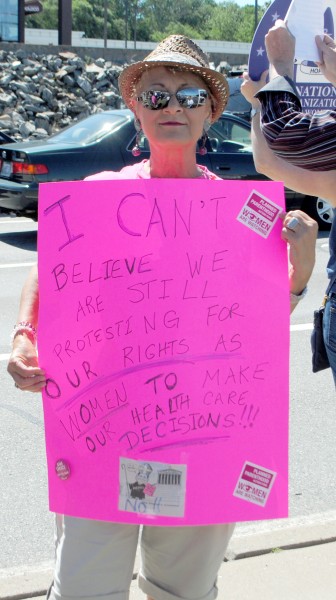 In all, the counter protest was a fizzle, if any such thing was actually in the works. And it’s hard to see what a counter-protest would look like. Would these people be arguing for more corporate control over employee health-care decisions? Would they argue for less freedom, less autonomy and less human rights?
In all, the counter protest was a fizzle, if any such thing was actually in the works. And it’s hard to see what a counter-protest would look like. Would these people be arguing for more corporate control over employee health-care decisions? Would they argue for less freedom, less autonomy and less human rights?




